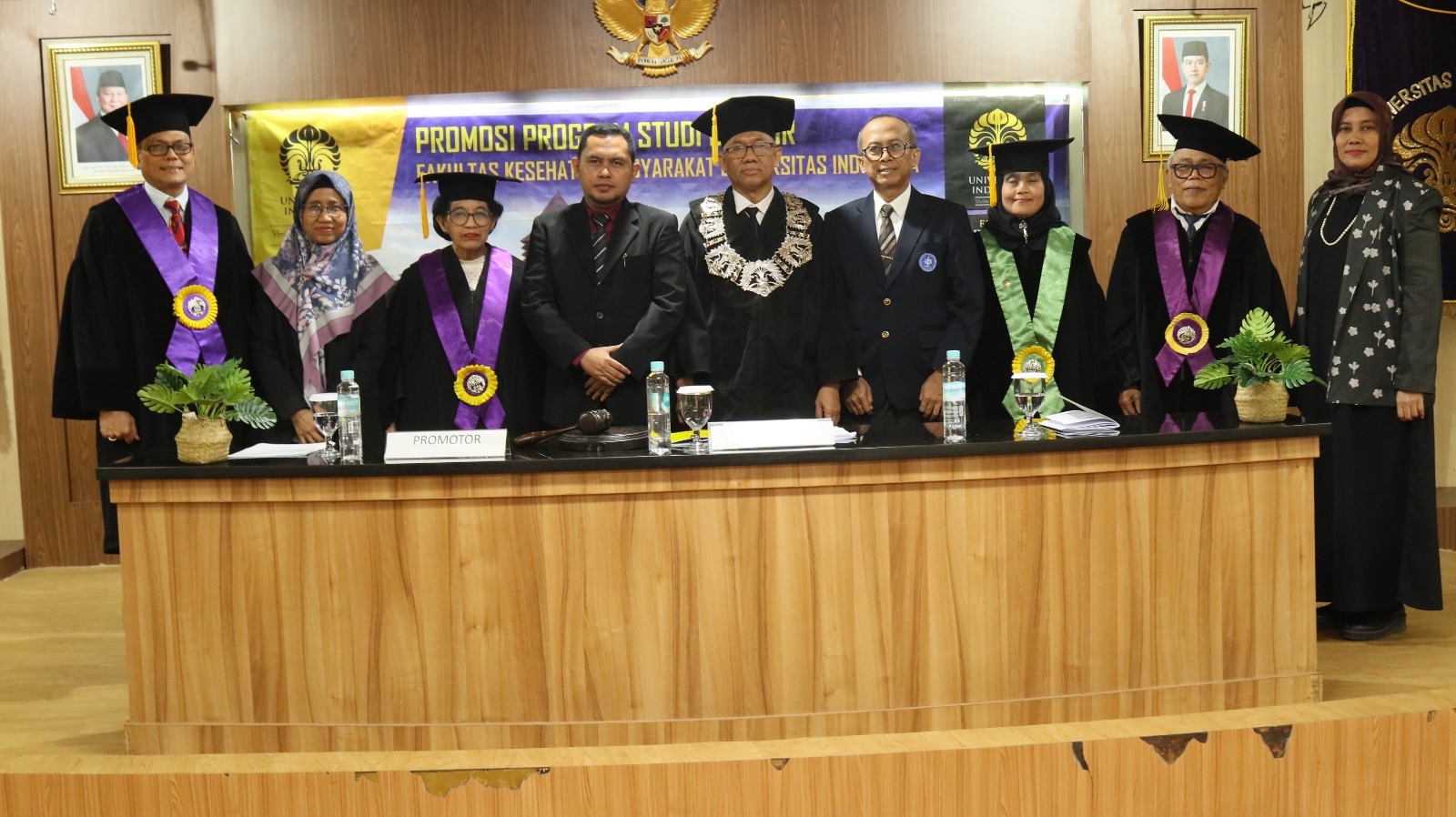The Faculty of Public Health (FPH) at Universitas Indonesia (UI) once again held an open doctoral promotion for the Epidemiology program on July 2, 2025, at the FPH UI Doctoral Promotion Room, with Rifai Ali as the doctoral candidate.
The examination was chaired by Prof. Dr. Mondastri Korib Sudaryo, M.S., D.Sc., accompanied by the main supervisor, Prof. Dr. Ratna Djuwita Hatma, M.P.H., and two co-supervisors, Dr. Ir. Umi Fahmida, M.Sc., and Prof. Dr. Besral, S.K.M., M.Sc. The examination team also included Prof. Dr. Hadi Pratomo, M.P.H., Dr.PH.; Prof. Dr. Rini Sekartini, Sp.A(K); Prof. Dr. Ir. Dodik Briawan, MCN.; and Dr. Hera Nurlita, SSIT., M.Kes.
In his dissertation titled “The Effect of Balanced Nutrition Guidelines Education Based on Local Food on Changes in Feeding Practices, Nutritional Intake, and Nutritional Status of Children Under Two in Pohuwato District, Gorontalo Province”, Rifai emphasized the importance of nutrition education based on local food potential as a strategic approach to preventing stunting.
The research was conducted in Pohuwato District, Gorontalo—a region rich in local food sources but still facing early childhood nutrition challenges. Rifai explained that suboptimal feeding practices, particularly during the first 1,000 days of life, are key contributors to stunting and micronutrient deficiencies.
Through the intervention of Balanced Nutrition Guidelines Education Based on Local Food (BNG-LF), Rifai demonstrated a significant improvement in children’s feeding practices. This was reflected in higher Dietary Diversity Scores (DDS) in the intervention group (p = 0.048), along with increased intake of energy, protein, vitamin A, folate, iron, and zinc (p < 0.05). Moreover, there was improvement in the height-for-age index (HFA) (p = 0.007) and a reduction in the weight-for-height index (WFH) (p = 0.034), although no significant change was found in the weight-for-age index (WFA).
For iron status biomarkers—serum ferritin and serum transferrin receptor—the intervention group showed an increasing trend compared to the control group, although not statistically significant.
Rifai concluded that a combination of intensive education, peer educator involvement, and cooking demonstrations using local food proved effective in shaping mothers’ positive feeding behaviors. This model holds promise for replication as part of community-based nutrition intervention programs for stunting prevention, especially in areas abundant in local food like Gorontalo.
Furthermore, Rifai recommended that both regional and national governments integrate BNG-LF-based nutrition education using Linear Programming approaches into services provided at community health centers (puskesmas) and integrated health posts (posyandu). He also stressed the importance of involving community health volunteers (kaders) and peer educators as key agents of behavioral change, particularly in child-feeding practices.
Through a Social and Behavior Change Communication (SBCC) approach supported by the BNG-LF module, Rifai expressed optimism that better and more sustainable feeding practices can be achieved—making a real impact on improving children’s nutritional status in Indonesia.
Based on the results of his dissertation, Rifai Ali was officially conferred the degree of Doctor in Epidemiology, becoming the 473rd doctoral graduate of the FPH UI program.
(promovendus)

